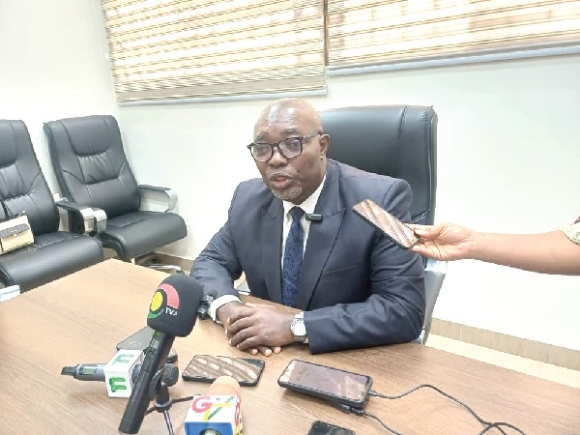THE Institute of Statistical, Social and Economic Research (ISSER) of the University of Ghana (UG) has called on the government to reintroduce the Fiscal Responsibility Act to help consolidate recent macroeconomic gains and ensure long-term fiscal discipline.
The research institute explained that with inflation dropping to single digits, gross international reserves standing at $10.7 billion as of August 2025 and the Cedi appreciating by 37.4 per cent year-to-date, Ghana has made significant progress in restoring economic stability and investor confidence.
However, ISSER stated that reinstating the Act — along with a more empowered Fiscal Council —will create a strong legal and institutional framework to prevent fiscal slippages, especially during election cycles.
Speaking to the media at the launch of the State of the Ghanaian Economy Report (SGER) 2024 in Accra on October 29, the Director of ISSER, Professor Robert Darko Osei, stated that maintaining such discipline after exiting the International Monetary Fund (IMF) programme will be crucial to sustaining growth and protecting the country’s hard-won economic resilience.
“We have shown that Ghana knows what to do to achieve fiscal stability; what is needed now is the institutional will to stay the course.
“A stronger Fiscal Responsibility Act will ensure that future governments remain accountable and resist the temptation to overspend during political cycles,” he said.
Transition
The director stressed that as Ghana prepares to transition out of the IMF-supported programme, it must stay committed to the fiscal and monetary reforms that restored macroeconomic balance.
He cautioned that a relapse into unsustainable spending patterns could undermine IMF targets and erode the confidence of international development partners.
“The IMF programme has offered Ghana a clear roadmap for stability and fiscal prudence.
“Exiting the programme should not mark the end of discipline, but rather the beginning of a self-sustaining path built on responsible economic management,” he added.
Fiscal consolidation
Prof. Osei stated that the country’s fiscal consolidation efforts were progressing steadily and needed to be sustained to ensure long-term economic stability.
He explained that Ghana had set a revenue target of 60 per cent, which, if achieved, would have marked a significant improvement compared to previous years. “We set ourselves in 19.2 per cent; remember that last year’s outcome was about 20 per cent of GDP,” he said, and added that meeting the target would have shown the government’s seriousness about fiscal discipline.
Professor Osei cautioned, however, that challenges persisted in balancing expenditure and investment priorities.
He stressed that “it was not always the case that our large savings were translated into investment-type spending.”
He said that certain structural rigidities in the government spending—such as compensation and interest payments—had limited flexibility and often resulted in cuts to capital expenditure.
He, therefore, called for continued fiscal responsibility and increased investment in growth-oriented projects to sustain the country’s positive economic trajectory.
Stronger investment
Professor Osei said there was a need for stronger investment in productive sectors such as agriculture, manufacturing and technology to drive inclusive growth.
He stressed that Ghana’s economic gains would only be meaningful if they translated into improved livelihoods for ordinary citizens.
He said fiscal reforms should not only aim at stabilising macroeconomic indicators but also support sectors that create sustainable jobs and enhance competitiveness.
He said that increased capital expenditure in infrastructure and value-added industries could help reduce the country’s dependence on imports.
Prof. Osei urged the government to strengthen collaboration with the private sector to unlock innovation and investment opportunities.
He maintained that a balanced approach between fiscal prudence and development spending was essential for long-term national progress.
